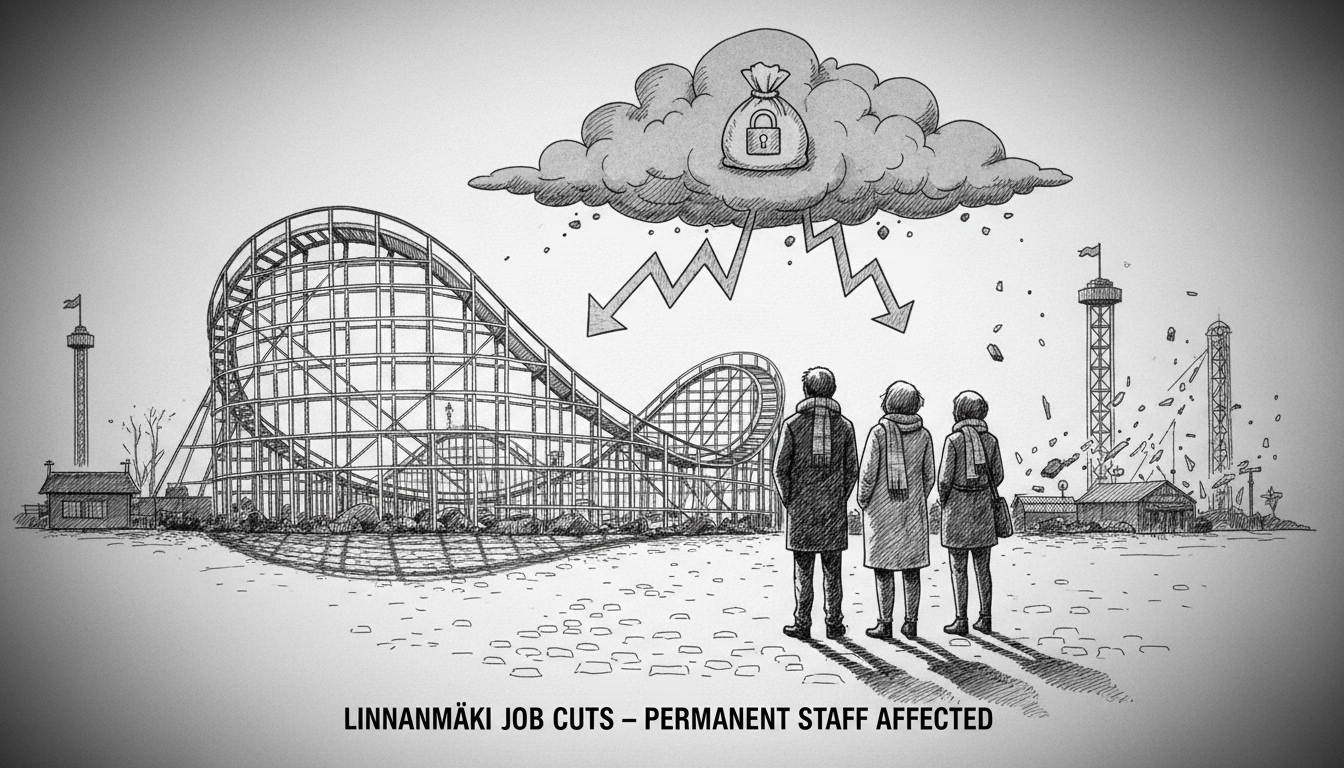Linnanmäki amusement park in Helsinki has started change negotiations that could lead to job losses and altered working conditions for permanent staff. The park's management confirms these talks may affect up to nine employees from the 75-strong permanent workforce. Park officials say they aim to find immediate savings on personnel costs outside the main operating season.
The negotiations began this week and focus on structural changes rather than current financial performance. Management wants to secure the park's ability to continue funding child protection work through its owner, the Children's Day Foundation. The foundation distributed 3.8 million euros to child protection causes last year and has provided over 130 million euros in total support throughout its history.
This situation reflects broader challenges facing Finnish amusement parks and family entertainment venues. Many struggle with seasonal fluctuations and rising operational costs. The cold start to last season and general economic uncertainty have added pressure on businesses that depend on favorable weather and disposable income.
Park management proposes several cost-saving measures including possible temporary layoffs and converting holiday bonuses into additional time off. They emphasize their commitment to genuine dialogue with staff while maintaining negotiation confidentiality until talks conclude.
The Children's Day Foundation owns Linnanmäki and channels all profits to child protection organizations. These include major Finnish child welfare groups like the Central Union for Child Welfare, Mannerheim League for Child Welfare, and Save the Children Finland. This structure means the park's financial health directly impacts social welfare funding.
Linnanmäki represents one of Finland's most beloved cultural institutions, having operated since 1950. The park recently celebrated its 75th anniversary, making these staffing changes particularly notable given its long history. The outcome of these negotiations will signal how traditional amusement parks adapt to changing economic realities while maintaining their social missions.
For international readers, this situation demonstrates how Finnish businesses balance commercial operations with social responsibility. Many Nordic companies maintain strong ties to charitable causes, creating unique challenges when economic conditions tighten. The park's approach to managing seasonal workforce needs while protecting its core mission offers insights into Nordic business culture.
What happens next depends on negotiation outcomes between management and employee representatives. The park's commitment to child protection funding remains unchanged, but how it achieves financial stability while supporting permanent staff will determine its operational model moving forward.

